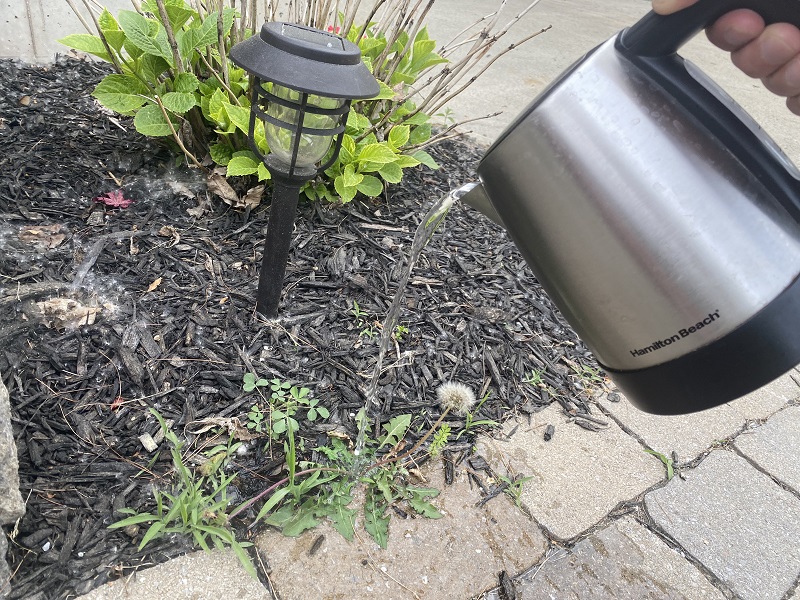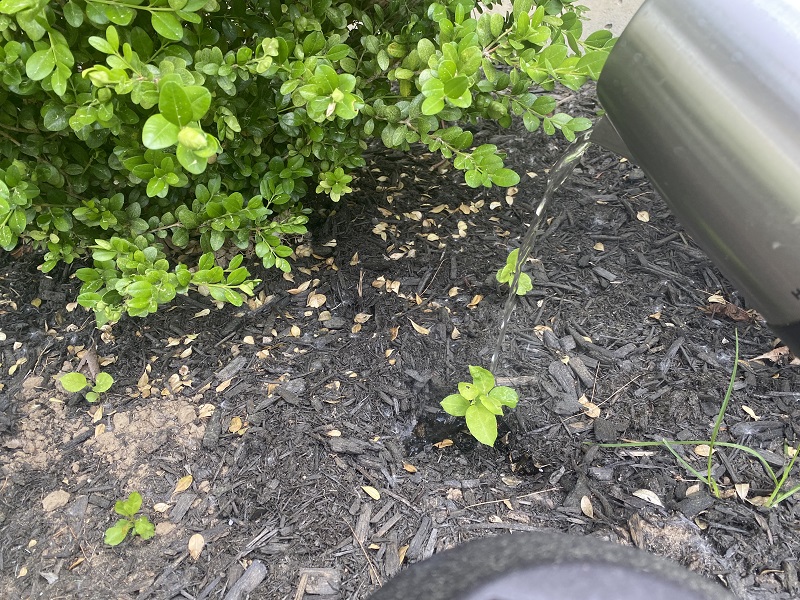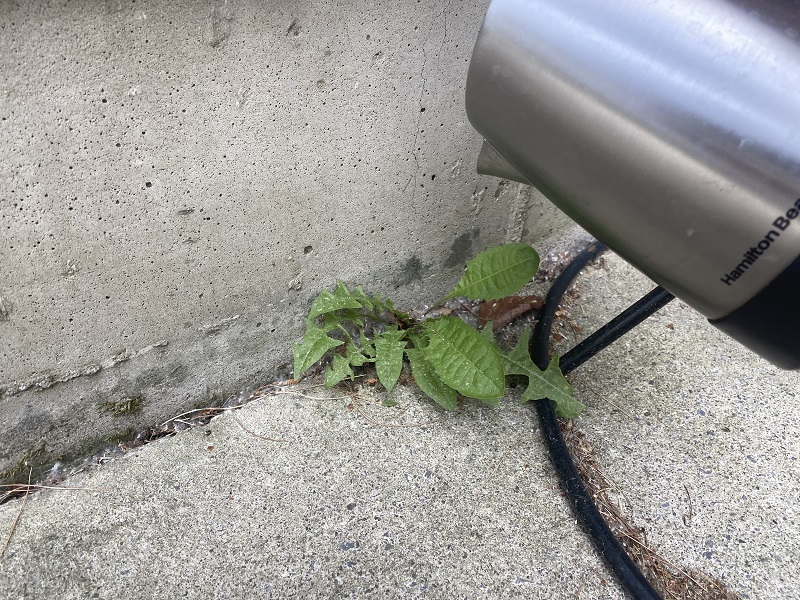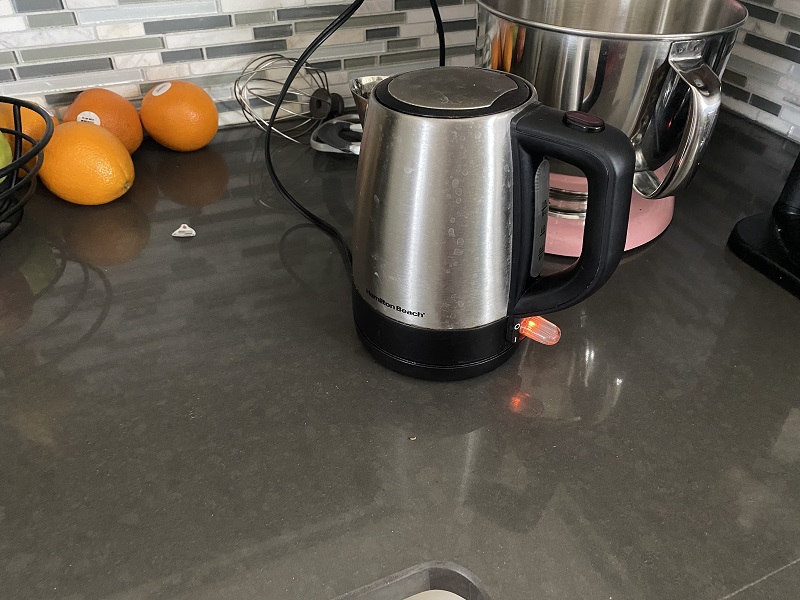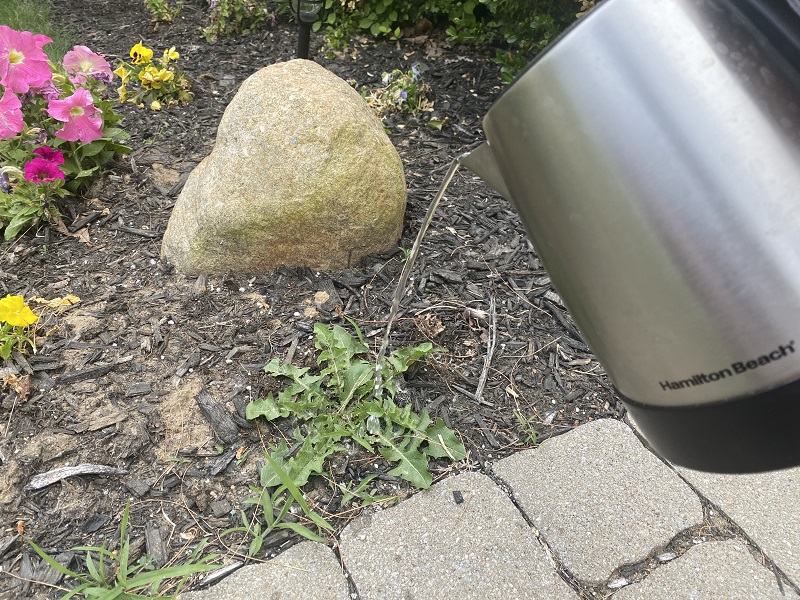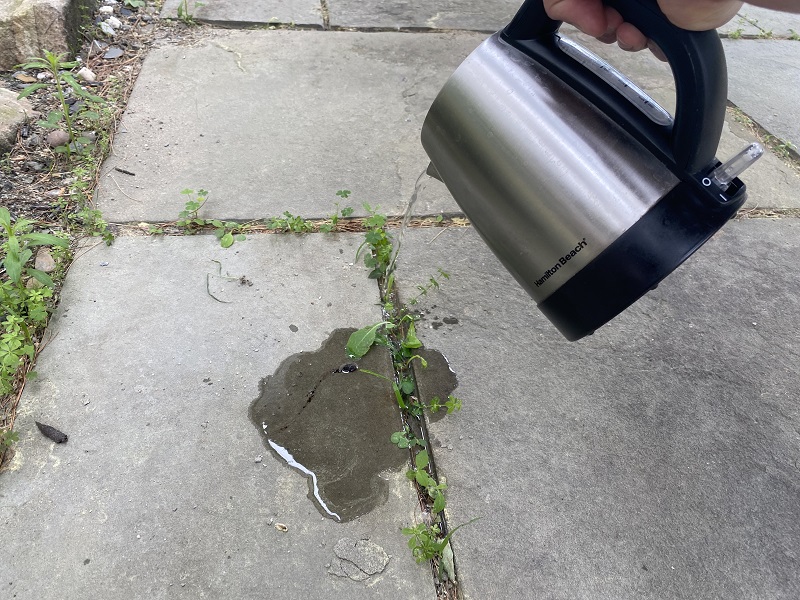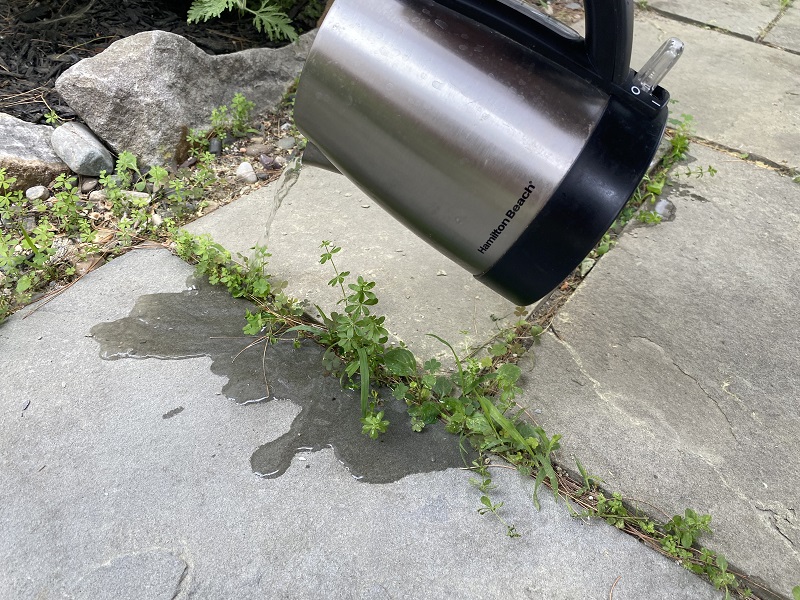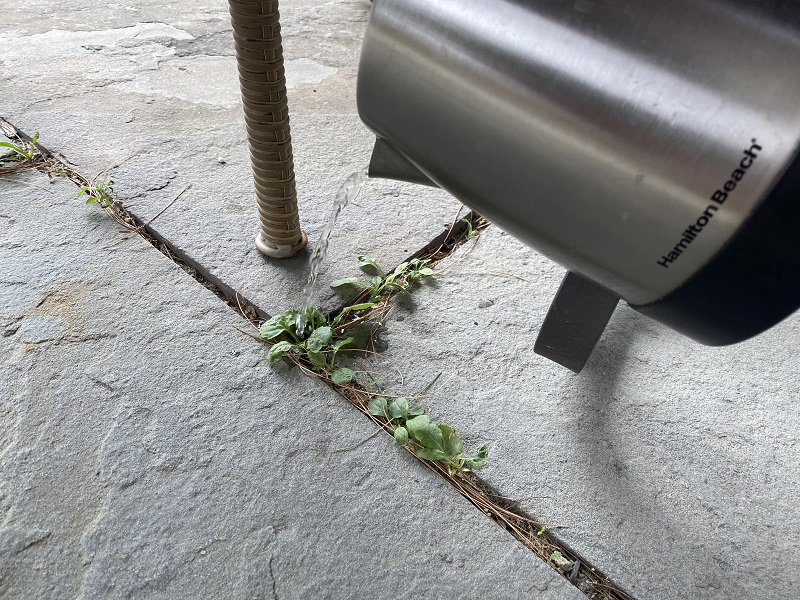Does boiling water kill weeds? Afterall, weeds are a common problem for any lawn, pavement, backyard patio, or garden at your home that people want to remove. While you can buy expensive products to battle and destroy weeds, an inexpensive option that could work well is boiling water. Boiling water helps break down weed structure, is cost-effective, and doesn’t add harmful chemicals to your lawn or garden.
So, what is the problem with weeds anyway? Will boiling water kill weeds? How would boiling water kill weeds in the first place? What are the pros and cons of using boiling water on weeds?
So, does boiling water kill weeds? Here is the complete breakdown!
What is the Problem with Weeds?
Weeds compete with other plants and vegetables to absorb nutrients in the soil and reach for sunlight. More often than not, the plants that you carefully planted, watered, and more won’t be able to compete against the more robust plant, which is the weed. Essentially, weeds will do a battle-of-the fittest and win against other plants.
Weeds are vicious in how they survive, but they can also prevent pests and other diseases from forming and attacking your plants. Since weeds can battle and survive harsh environmental conditions, they can be a natural home for pests since they are around early in the spring before other plants and vegetables can be planted nearby. That means that there can be a colony of pests in the weeds ready to pounce on your new plants the moment you plant them.
Finally, in general, weeds throw off the look of your garden or lawn. The time you spend making things look pretty can turn ugly with weeds. Weeds can also outgrow other plants, which can block them from getting sunlight and water, killing everything in your garden except the weeds.
How Does Boiling Water Kill Weeds?
The heat of the water will collapse the weed’s structure and ultimately kill them. The hot water breaks through the soil and gets down to the root system, which will help destroy the broad-leaf weed root structure. Also, the force of the water from the tea kettle will create additional pressure as it lands on the weed and roots, which helps break down the structure, whether it is in the dirt, mulch, lawn grass, or something else.
However, depending on how big the weed structure is, you may have to repeat this hot water treatment multiple times.
How to Use Boiling Water on Weeds?
The process of using boiling water as a weed control tool is straightforward. Here are the steps to take for the boiling water method.
- Consider putting on long sleeves, closed-toed shoes, and long pants in preparation for transporting the hot water.
- Boil water in a tea kettle. It is best to use a teak kettle since it is easier to pour via the spout, unlike a pot.
- Using oven mitts, pick up the tea kettle by the handle once the water boils.
- Dump the hot water directly on the weeds. Be mindful about how much water you put on the plants because you don’t want that scalding water to damage healthy plants in your garden or front of your area.
- Repeat the process above depending on the severity of your weed issue
Also, you can consider adding a bit of dish soap, white vinegar, and boiling water together to the weeds if you have a big pile of weeds in your yard.
What are the Pros of Using Boiling Water to Kill Weeds?
There are many pros to using scalding water on weeds. Here are some of the pros to consider.
Cost-Effective Method
One of the benefits of using boiling water on your weeds is that it is a cost-effective replacement against using store-bought solutions to handle the matter. Gardening and basic lawn care become expensive by adding new mulch, planting flowers, lawn care, etc. If you are looking for an affordable DIY way to handle your weed problem in your mulch or garden, go the cost-effective route with boiling water.
A Non-Chemical Weed Killer
Using boiling water on your weeds doesn’t include any harmful herbicides. If you are looking for a way to treat dandelions and other weeds, boiling water can be a great solution if you don’t want to use harmful chemicals. Plus, if you are already using a lawn service that puts detrimental chemicals into your yard, using a non-chemical weed killer can help limit any other chemical runoff into the yard that can mess with your lawn care treatment.
Can Also Treat Crabgrass
If you have small patches of crabgrass in your yard, you can treat that with some boiling water. The boiling water will stun the crabgrass and remove the issue affecting your lawn. However, one note is that you should put a 2-3 foot radius around the crabgrass with boiling water, so this method is only suitable for small areas in your yard.
Can Treat Weeds in the Cracks on Your Patio and Driveway
Sometimes it is difficult to pull the weeds out of the cracks between your patio and driveway. If you try and pull the weeds out of those small spaces, you might be unable to get the entire root system. If that is the case, using the natural weed killer of boiling water works excellent because the liquid will go down the earth and break down the weed root structure.
What are the Cons of Using Boiling Water to Kill Weeds?
There are some cons to know about when dumping boiling water on your weeds. Here are some of the cons to be familiar with before starting the process.
Can Harm Yourself by Accident
One of the cons of working with boiling water is hurting yourself. The recommendation is to wear long pants, sleeves, closed-toed shoes, and oven mitts when dumping boiling water onto the plants. If you do this process wearing sandals, you might spray your foot as the water bounces off the ground, which can cause you to drop the hot water and burn yourself. Always be careful when using scalding water on the weeds.
Can Damage Desirable Plants
If you are not careful when dumping scalding water on your plants, you can damage your garden’s other plants or vegetables. One issue with boiling water is that the water will spread underneath the soil, seeping into other plants. When you start using this method, only use a little bit of water so you can adequately determine how much water spreads after you use it on plants.
Can Take Multiple Attempts, Which Takes More Time
One of the benefits of using Roundup or a similar weed-killer sprayer product is that it works quickly. If you need to remove any weeds in a garden or yard promptly, you may consider using a product designed to kill weeds. Otherwise, it will take multiple rounds of boiling water and how much of an area you can treat at once with the kettle of water.
What Happens if Weeds Sprout Again After Using Boiling Water?
The chances are that weeds will sprout again if you only use one hot water treatment on them. If that is the case, consider repeating the process a few more times to add more hot water to the weed root system. Also, give thought to using grass clippings on the mulch since that can make it difficult for the weed seeds to form new weeds, even after using boiling water on the structure.
Conclusion: Does Boiling Water Kill Weeds?
In summary, boiling water has some positives to consider when battling weeds in your garden. Using hot water is a cheaper alternative than buying weed-killing products, doesn’t add any harmful chemicals to your property, and can also treat small patches of crabgrass on your lawn.
However, there are some cons to using boiling water on weeds. Some of the cons include needing multiple rounds of scalding water to work, burning yourself, and you can damage nearby plants if you are not careful.
Next time someone asks, “will boiling water kill weeds,” or “does boiling water kill weeds” you will be able to answer yes!
Similar Posts:
What Does Plant Division Mean?
Why is Plant Propagation Important?
Why are Mushrooms Growing on my Houseplant?
Is Having Plants in your Bedroom Good or Bad?
Is Bong Water Good for Plants?
Are Eggshells Good for Plants?
Are Humidifiers Good for Plants?
Is Rice Water Good for Plants?

